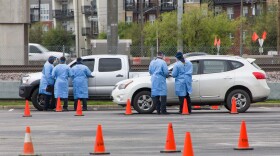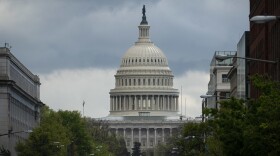Audrey Carlsen
-
Not everyone gets tested. A new model estimates how many infections are missed because of this and how many people are actively shedding the virus. The results lend urgency to the vaccine race.
-
The U.S. is striving to vaccinate as many people as possible against COVID-19 — and keep them up-to-date with boosters. But some states are lagging behind. See how yours is faring.
-
COVID-19 hospitalizations continue to strain U.S. hospitals in certain places, while the burden is easing up in other areas. Look up your local hospital to see how it's faring.
-
Parts of the West Coast experienced very unhealthy or hazardous air from wildfires for the first time ever recorded. Millions endured that smoke for twice as long as the recent average.
-
An NPR investigation shows that black and Latino neighborhoods in four large Texas cities have fewer coronavirus testing sites, leaving communities blind to potential COVID-19 outbreaks.
-
Breakthrough infections continue to hit Capitol Hill, with vaccinated members announcing positive coronavirus cases amid a surge caused by the delta variant.
-
More than 200 dietary supplements have been recalled in recent years because they contain drugs that aren't listed on the label and are potentially harmful, an analysis finds.
-
A push to make narcotic painkillers harder to abuse means that generic versions of OxyContin won't be allowed. But drugs that are more resistant to abuse are expensive and can still be addictive.
-
Ricin is a naturally occurring toxin found in castor beans. You can get sick by eating beans. But purified ricin can be made pretty easily and used for no-good.
-
Research in mice suggests that short-term hearing loss caused by loud noise like rock concerts may protect ears from more serious damage. But adapting to noise can be dangerous, researchers warn.






